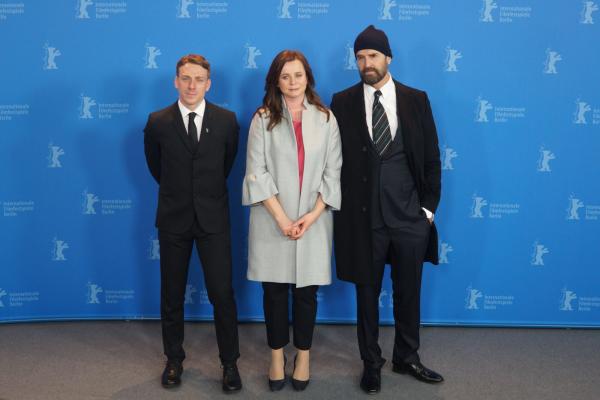A TRAUMATIZED Iraq War veteran and Oscar Wilde don’t immediately invite comparison, but in two current films they could be scapegoated brothers. The Happy Prince, a labor of love for its writer-director-star Rupert Everett, and Leave No Trace, director and co-writer Debra Granik’s first fiction feature since Winter’s Bone, are both about men in a wilderness, not because they have done anything wrong but because the dominant culture doesn’t want to see them. And I mean truly see them—especially the way they may remind us of discomfort with ourselves.
In Leave No Trace, Ben Foster’s Will has given mind and body for his country and wants to live where he feels safest—in the woods. He handles himself and keeps his daughter (the brilliant Thomasin McKenzie) physically safe, emotionally healthy, and growing in knowledge of the world, but because he doesn’t care for the “system” that harmed him, he must hide or jump through hoops to prove he’s as good as anyone else.
Everett’s Oscar Wilde, in The Happy Prince, is trying to make a life after being imprisoned for love. The first prison was the love itself, love made torment by bigotry; the second a literal jail. He’s broke and broken. He doesn’t always treat others well, but aches to grant the world what he can: amusement at ourselves mingled with compassion for those living “in the gutter,” whether or not they can see the stars. These beautiful films offer hope without cliché, recognizing that our experience of tragedy always coexists with love.
The Happy Prince and Leave No Trace have among the most evocatively ambiguous titles since Unforgiven reminded us that withholding mercy is also a form of (self-)harm. These current titles evoke their opposite, respecting pain and imagination as two sides of a coin and acknowledging how social conventions often depend on vulnerable people keeping their suffering secret. These stories are angry about the prejudice that seeks to turn so-called “difficult people” into blank slates instead of souls—but not vengeful. They illustrate the courage of those made to pay the price for all our sins and offer a powerful challenge to polarization.
For, as it turns out, tending to the plank in our own eyes before the speck in someone else’s might teach us to not attack someone for reminding us of what is unresolved in ourselves. Without self-reflective compassion that can differentiate between restorative accountability and scapegoating, the road to the common good is blocked.

Got something to say about what you're reading? We value your feedback!







